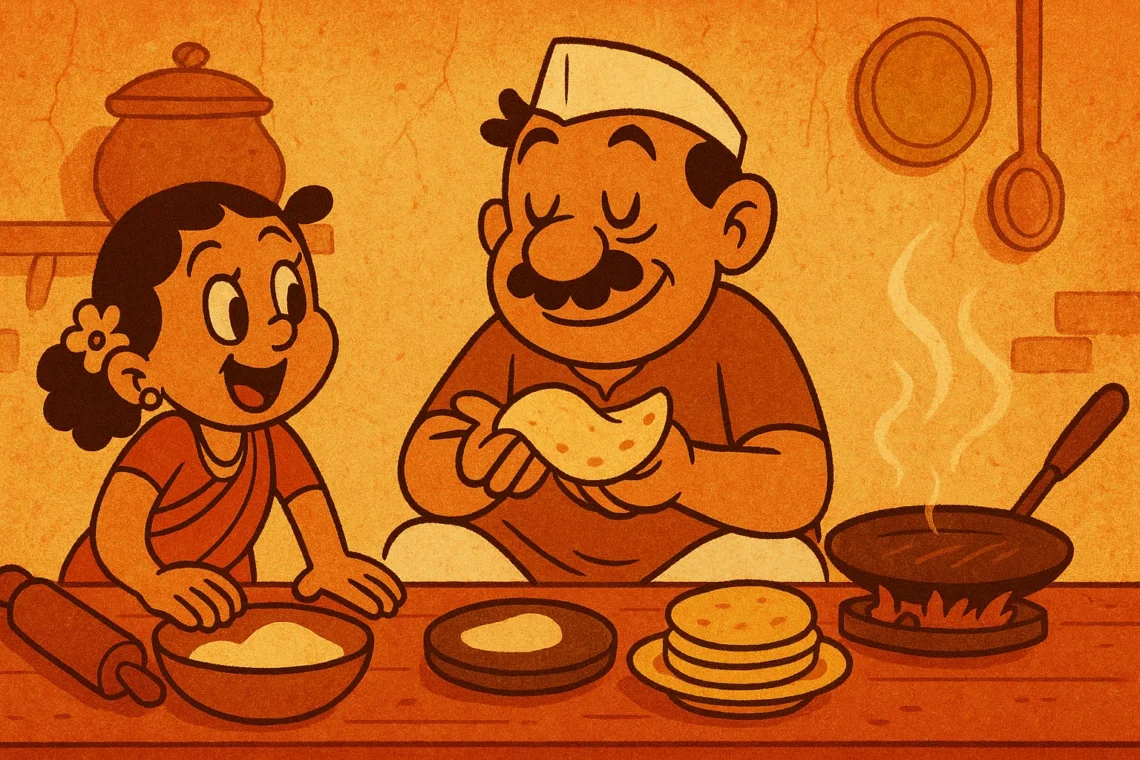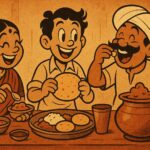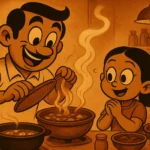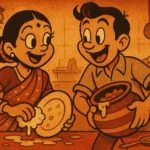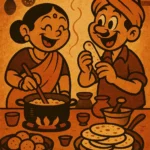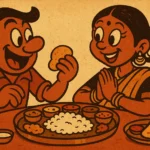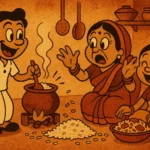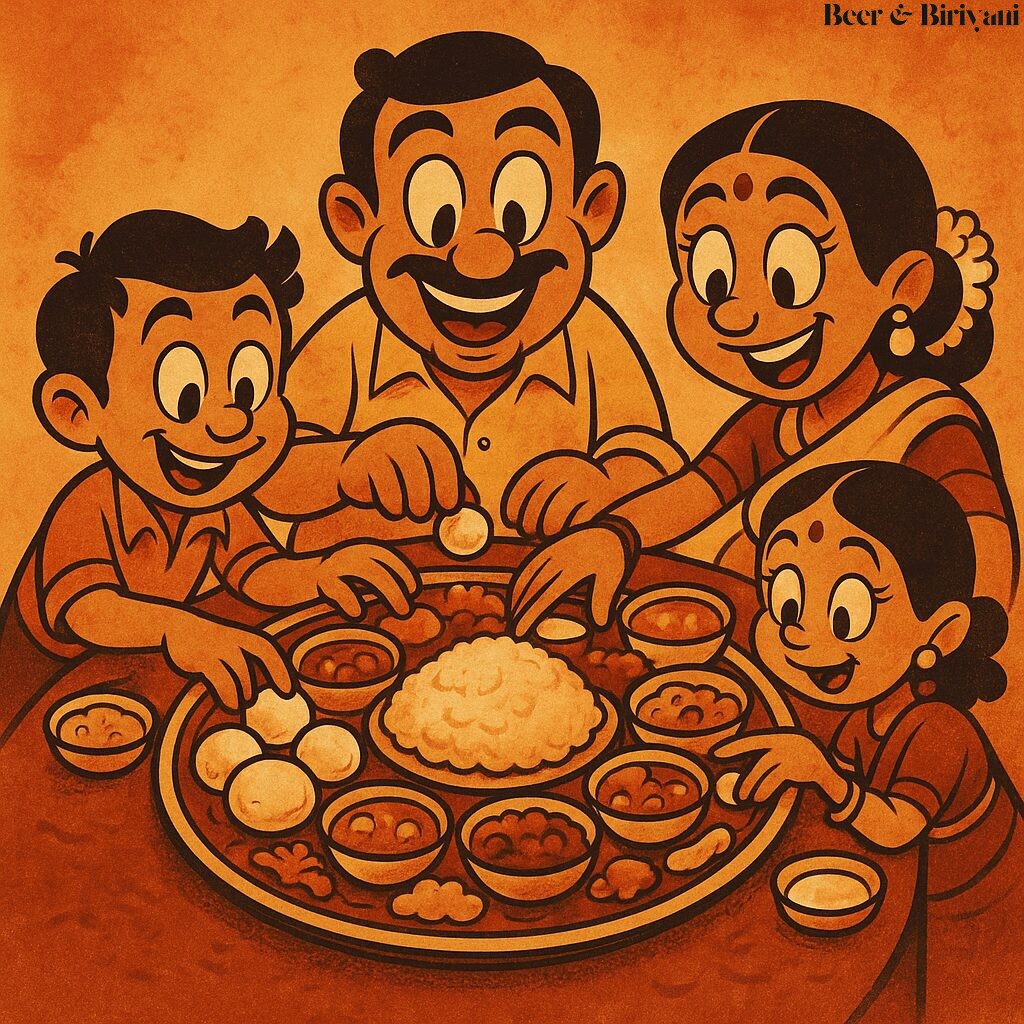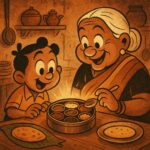He never cooked them. Never rolled the dough or flipped them on the tawa. But once the chapatis were done — stacked warm, soft, and slightly puffed — my father would appear, almost ceremonially. He’d pull up a chair, unwrap a clean kitchen towel, and begin folding each one with a concentration that felt almost sacred. One by one, he’d take the circular discs and fold them into neat quarters, tucking them into a steel dabba like he was arranging rare documents. No one asked him to do it. He just always had.
In a house where most things were loud — the pressure cooker, the evening news, the cousins playing cricket in the hallway — this ritual was silent. Quiet in that rare, gentle way that demands no applause. My mother would be rinsing lentils or stirring the curry, and he’d be there in the corner, folding chapatis. No talking. No fuss. Just the soft rustle of wheat and the metallic clink of the dabba lid as it filled up.
Folding Was His Way In
My father wasn’t a kitchen person. He wasn’t someone you’d find inspecting spice jars or arguing about tamarind versus amchur. But the chapati folding — that was his. A way of helping without getting in the way. A contribution that was small in task but enormous in rhythm. His hands, always rough from years of office files and scooter handlebars, became oddly gentle when holding those fragile layers of heat and grain.
Sometimes he’d hum. Old Hindi film songs, usually Mukesh. Sometimes he’d just sigh and keep going. If one chapati tore slightly, he’d fold it carefully, hiding the flaw in the crease. If one had bubbled more than the others, he’d smile — a private celebration of good puffing technique, even though he hadn’t made it himself.
A Ritual That Outlived the Meal
The chapatis were meant for lunch the next day. For his tiffin. For our school boxes. Sometimes for unexpected guests. But the folding wasn’t about preservation. It was about completion. About closing the circle of the meal. About not letting the warm stack sit idle, exposed to air and indifference. About care disguised as muscle memory.
It wasn’t rushed. He never folded too many at once. Each one got its moment. Pressed gently, folded twice, and placed like a letter waiting to be read. It was the opposite of multitasking. It was singular. Devoted. Almost meditative.
And Then, One Day, I Noticed
I must have been in my teens when I first paid attention to how he did it. I asked him, “Why do you always fold the chapatis like this?” He looked up, surprised. “Because that’s how my mother did it. And they stay soft this way.” He shrugged, as if that explained everything. And maybe it did. Because behind every repeated movement in a kitchen, there’s a lineage. A lesson passed down, not with instructions, but with routine. With hands.
Now, in my own kitchen, thousands of miles away, I sometimes find myself folding chapatis the same way. Even when it’s just one or two. Even when I know I’ll eat them in ten minutes. Something about that quiet folding feels like a bridge — back to that corner of our kitchen, that evening silence, that unsaid gratitude passed from food to hand to box.
The Smallest Acts Are Sometimes the Loudest
We talk a lot about love in grand terms. Sacrifice. Effort. Celebration. But my father’s chapati folding taught me about the love that doesn’t announce itself. That doesn’t require a festival. Just a stack of wheat, a towel, and five minutes at the end of the day.
He still does it. Now slower. Still quiet. Still precise. I watch him, and everything feels stitched back together. Time, memory, hunger, home — all folded neatly into quarters and sealed with a gentle press.
Born in Mumbai, now stir-frying feelings in Texas. Writes about food, memory, and the messy magic in between — mostly to stay hungry, sometimes just to stay sane.

